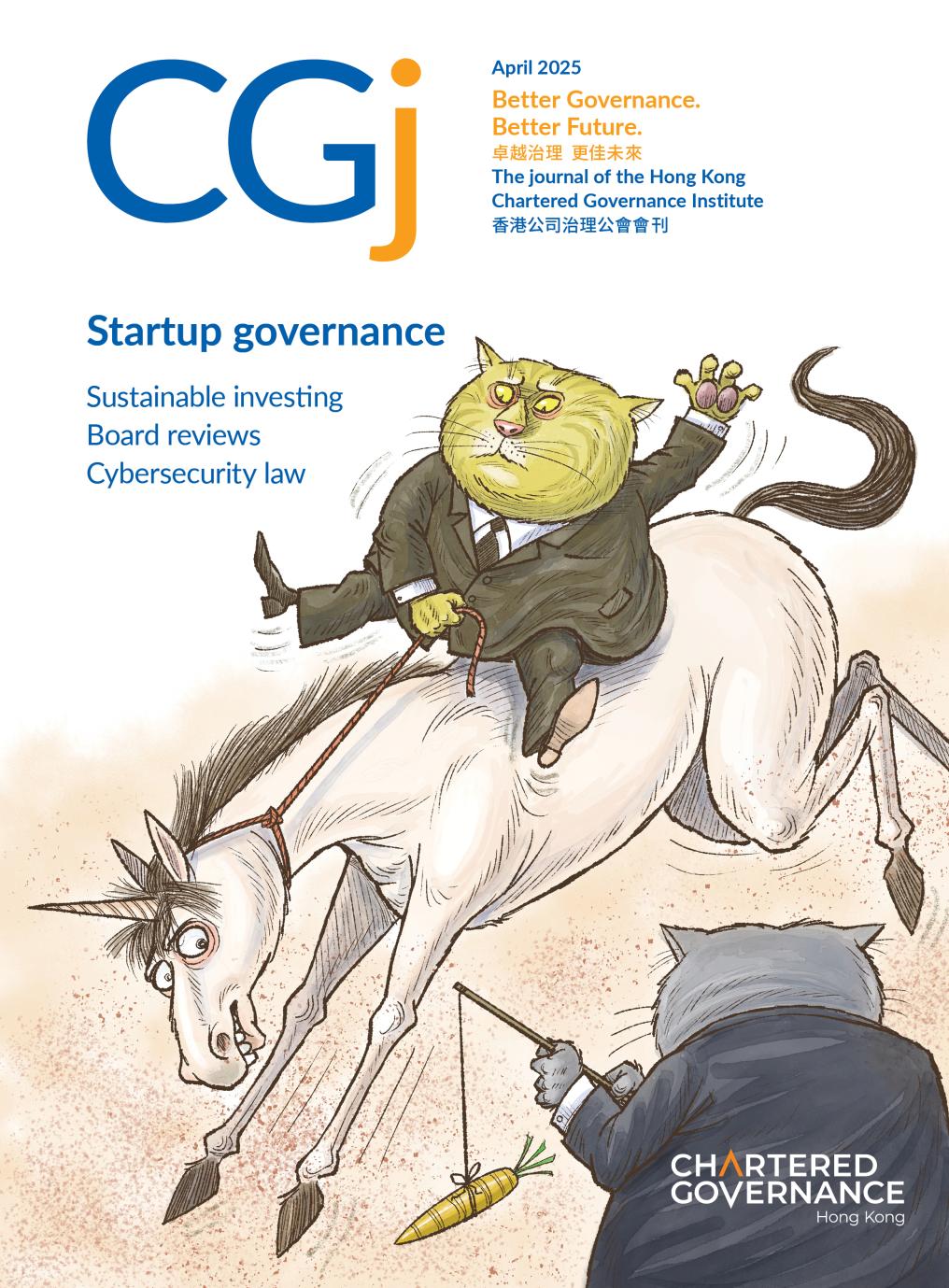
Governance 101
Our focus in this journal is usually on large, established organisations with top-tier governance frameworks. That makes sense, of course, in terms of learning from best practices, but organisations in the above category will always be – whether here in Hong Kong or globally – in a small minority. Small and medium-sized enterprises (SMEs) constitute the backbone of economies worldwide and, among them, startups deserve special attention for their part in driving transformative change and shaping the future of industries and communities.
So this month we turn our attention to startups that typically have minimal, or even no, governance frameworks in place. What can we learn from such entities? Certainly, we are unlikely to find best-in-class governance systems, but there is a very important message for even the most experienced governance professional in this month’s theme.
That message, put simply, is that governance has an image problem where it is seen as imposing a cost in terms of time and money that startups cannot afford to pay. The consequences of that image problem can be seen in the large number of startups that don’t survive their youth. As readers of this journal know, governance at its core is about facilitating good decision-making in a timely manner and ensuring effective risk management – outcomes essential to the survival of any organisation. In that sense, startups cannot afford to neglect implementing governance or deferring it for another day.
Our first cover story this month gives a useful introduction to the governance issues that startups need to address as early as possible in their development. At the top of the list is the need to have clarity about the respective roles of founders, directors and investors. Founders frequently assume multiple roles, leading to a concentration of power that is a potential vulnerability. At the outset, therefore, startups should focus on building a balanced board and documenting agreements and decisions. Needless to say, the board should ideally include independent directors who are able to ask hard questions about strategic and operational matters.
The risks for startups and other SMEs of failing to address governance issues are potentially existential. While these entities may have limited resources and decisions need to be made swiftly, turning a brilliant idea into a successful company requires more than entrepreneurial ingenuity – and putting basic governance protections in place does not have to require significant financial resources. Indeed, there is significant flexibility in the way that startups can ensure good governance outcomes.
Our Institute is keen to get the message out there (particularly where it is most needed) that governance is not only about cost and compliance. For startups and SMEs, getting at least the ‘governance 101’ measures in place at an early stage will help to ensure that potential problems are identified and responded to before they escalate. On a more positive note, good governance will lay the groundwork for sustainable growth in an increasingly competitive landscape.


